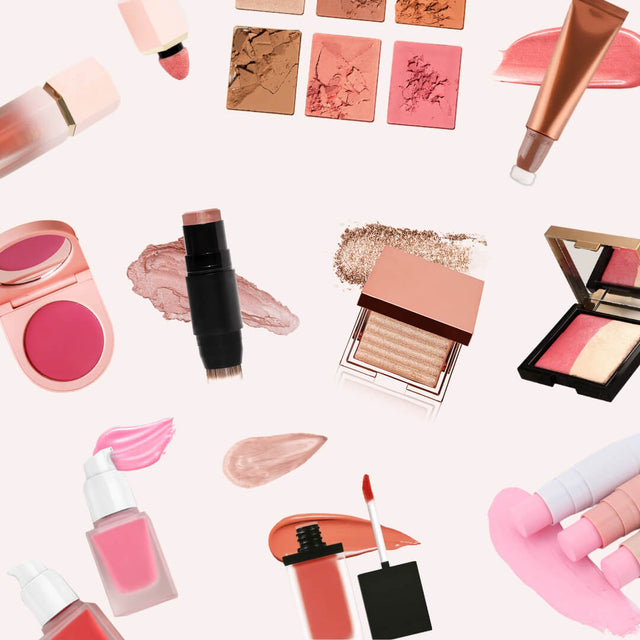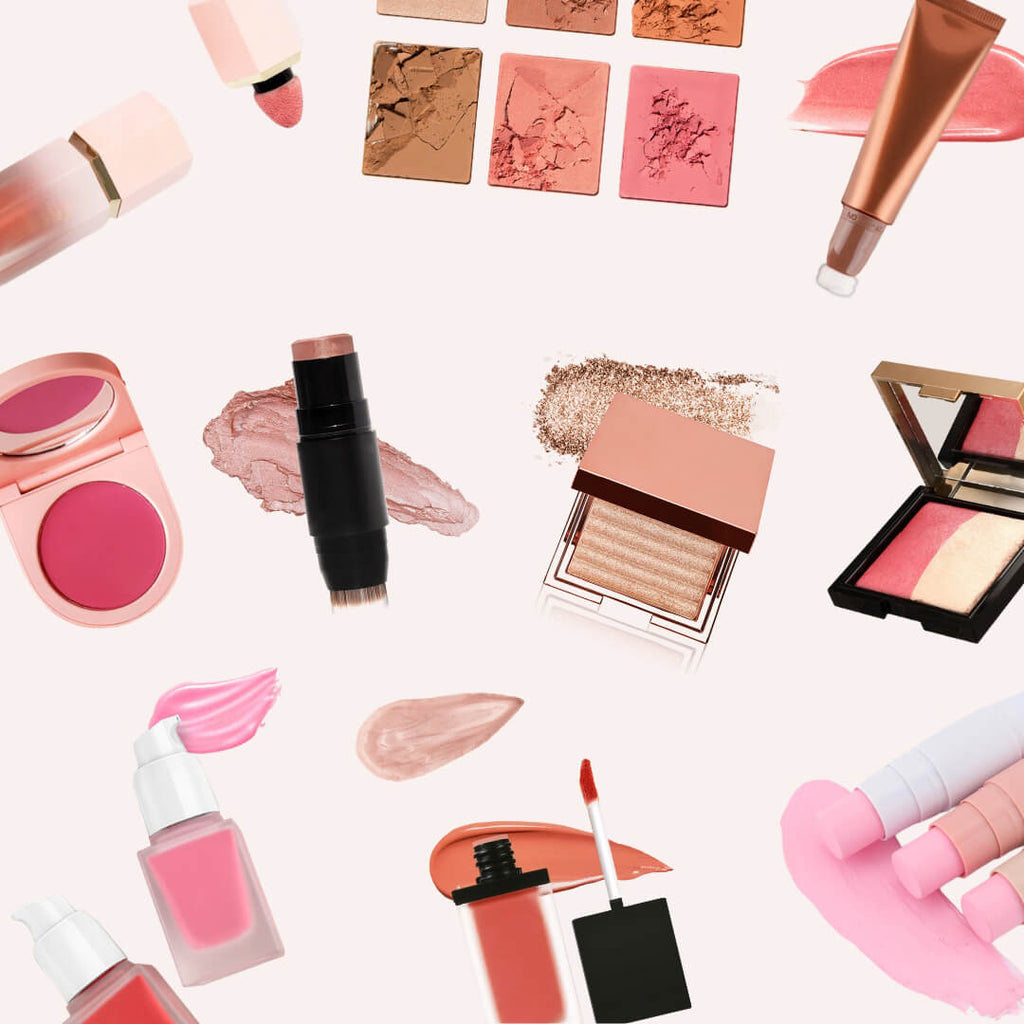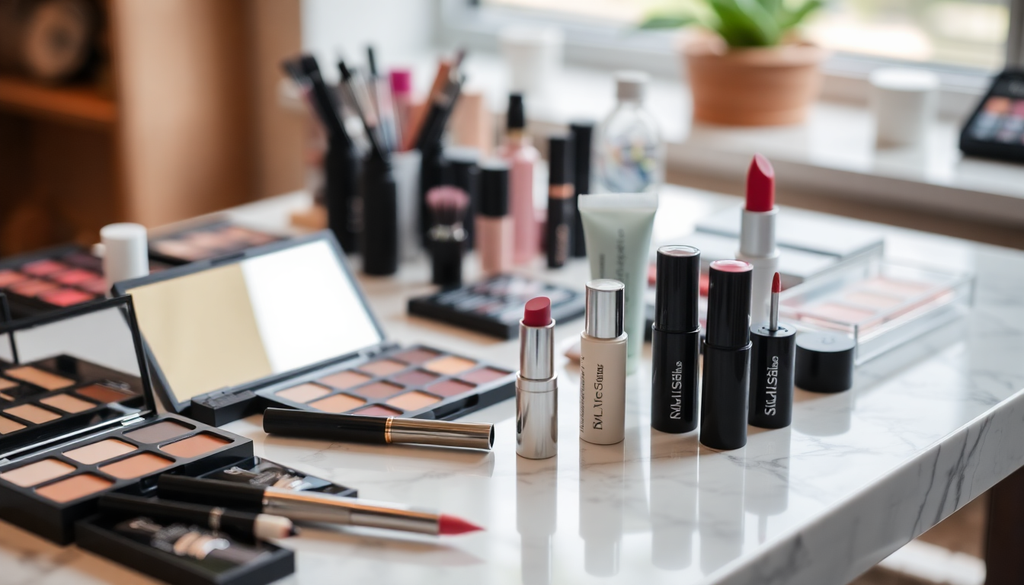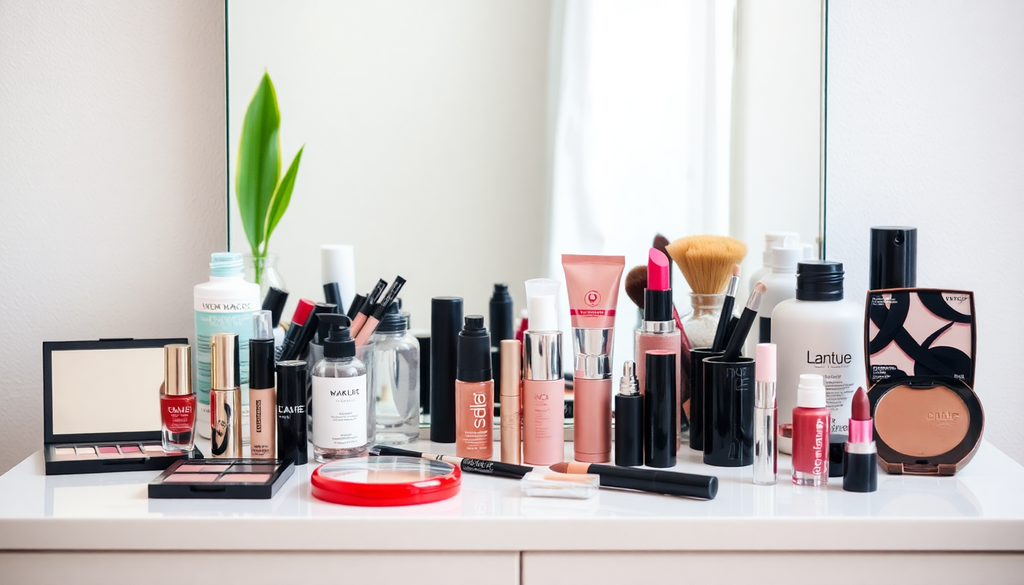
Building Your Global Makeup Brand in 2025: Step-by-Step Guide to Understanding Cosmetic Regulations, Import Policies, and Trendy Innovations in Key Markets
Introduction
As the global beauty industry continues to flourish, 2025 presents an ideal opportunity for entrepreneurs to establish their makeup brands. The growing demand for innovative cosmetic products, coupled with the rise of e-commerce, has opened doors for ambitious individuals looking to make their mark in the beauty sector. However, navigating the complex landscape of cosmetic regulations, import policies, and emerging trends is essential for success. This comprehensive step-by-step guide will help you understand the requirements and innovations in key markets around the world, ensuring that you can build a thriving global makeup brand.
Understanding Cosmetic Regulations
Before launching your makeup brand, it’s crucial to understand the cosmetic regulations in your target markets. Regulatory compliance not only protects consumers but also builds brand credibility. Here’s an overview of regulations in several key regions:
- United States: In the U.S., the Food and Drug Administration (FDA) oversees cosmetics, requiring proper labeling, safety assessments, and ingredient disclosures. Brands must comply with the Fair Packaging and Labeling Act, which mandates that products include the name and address of the manufacturer, as well as a list of ingredients in descending order of predominance.
- European Union: The EU has one of the strictest regulatory frameworks for cosmetics. The Cosmetics Regulation (EC) No. 1223/2009 mandates safety assessments, Good Manufacturing Practices (GMP), and specific labeling requirements, including the product's function, precautions for use, and a list of ingredients. Additionally, products must be registered in the Cosmetic Product Notification Portal (CPNP) before being placed on the market.
- Canada: Health Canada regulates cosmetics under the Food and Drugs Act. Brands must ensure that their products are safe for use and accurately labeled. It’s essential to familiarize yourself with the Cosmetic Ingredient Hotlist, which outlines prohibited and restricted substances in cosmetics.
- Australia: The Australian Competition and Consumer Commission (ACCC) oversees cosmetics, emphasizing correct labeling and prohibiting misleading claims. Products must comply with the Industrial Chemicals Act, ensuring safety and quality standards are met.
- Japan: The Pharmaceutical and Medical Device Agency (PMDA) regulates cosmetics in Japan, requiring that products undergo a pre-market notification process. Companies must also adhere to Japanese Cosmetic Standards, which include specific ingredient restrictions and labeling requirements.
Navigating Import Policies
Understanding import policies is fundamental when expanding your makeup brand internationally. Import regulations can significantly impact how you launch your products. Here are important considerations for key markets:
- United States: When importing cosmetics into the U.S., compliance with FDA regulations is mandatory. Importers must provide the necessary documentation, including invoices, shipping papers, and labeling that meets FDA standards. Additionally, products may be subject to inspection upon entry.
- European Union: In the EU, cosmetics must undergo a notification process before entering the market. This involves submitting a Product Information File (PIF) that includes details about the product’s formulation, manufacturer, and safety assessments. Additionally, products must comply with REACH regulations, which require the registration of chemical substances.
- China: The Chinese market is known for its rigorous regulations, particularly regarding animal testing for imported cosmetics. Brands must navigate the complexities of the China National Medical Products Administration (NMPA) regulations, which involve extensive documentation and testing before products can be sold.
- India: The Bureau of Indian Standards (BIS) regulates cosmetics in India. Brands must register their products with the Central Drugs Standard Control Organization (CDSCO) and comply with local standards, including ingredient restrictions and labeling requirements.
- Brazil: In Brazil, the National Health Surveillance Agency (ANVISA) regulates cosmetics. Brands must submit a registration application that includes product formulation, safety data, and labeling information. Additionally, all products must comply with Brazilian standards regarding packaging and advertising.
Setting Up Your Online Makeup Store
As e-commerce continues to dominate, setting up an online store is essential for reaching a global audience. Here are key steps to consider when establishing your online makeup store:
- Choose the Right E-commerce Platform: Selecting the right platform is critical for your online store's success. Consider options like Shopify, WooCommerce, or BigCommerce, which provide user-friendly interfaces, customizable templates, and robust features to enhance your store’s functionality.
- Design Your Website: Your website should reflect your brand's identity. Ensure it is visually appealing, easy to navigate, and mobile-responsive. Use high-quality images and compelling content to showcase your products and engage visitors.
- Implement Secure Payment Options: Offering multiple payment options, such as credit cards, PayPal, and digital wallets, will enhance customer trust and convenience. Ensure your payment gateway is secure to protect customer information.
- Optimize for SEO: Search engine optimization (SEO) is essential for driving organic traffic to your site. Incorporate relevant keywords, optimize meta tags, and create high-quality content that resonates with your audience. Regularly update your blog with beauty tips, makeup tutorials, and product reviews to keep your site fresh and engaging.
- Leverage Social Media: Promote your online store through social media channels like Instagram, Facebook, and TikTok. Engage with your audience by sharing behind-the-scenes content, product launches, and beauty tutorials. Use targeted ads to reach specific demographics and drive traffic to your site.
- Establish Customer Service Protocols: Providing excellent customer service is crucial for building brand loyalty. Set up a responsive customer service system, including live chat options, email support, and a comprehensive FAQ section to address common inquiries.
Marketing Your Makeup Brand
Effective marketing strategies can set your brand apart in a crowded market. Here are some innovative approaches to consider:
- Influencer Collaborations: Partnering with beauty influencers can significantly boost your brand's visibility. Choose influencers whose values align with your brand and leverage their reach to attract new customers. Consider hosting giveaways or exclusive promotions to incentivize their followers to engage with your brand.
- Social Media Engagement: Utilize platforms like Instagram and TikTok to showcase your products through engaging content, tutorials, and user-generated posts. Create visually appealing posts, stories, and reels that highlight your makeup products in action. Encourage customers to share their looks using your products, fostering a sense of community and brand loyalty.
- Sustainability Initiatives: Highlight your commitment to sustainability by incorporating eco-friendly practices into your brand. Use recyclable packaging, source ingredients responsibly, and promote cruelty-free formulations. Consumers increasingly prioritize sustainability, and demonstrating your efforts can attract conscious buyers.
- Augmented Reality (AR) Try-Ons: Implement AR technology to allow customers to virtually try on makeup products before purchasing. This innovative approach enhances the shopping experience, reduces returns, and increases conversion rates. Consider collaborating with AR companies or integrating existing solutions into your online store.
- Email Marketing Campaigns: Build an email list to keep your customers informed about new product launches, promotions, and beauty tips. Craft engaging newsletters that provide value, such as makeup tutorials or exclusive discounts, to keep your audience engaged and encourage repeat purchases.
Embracing Trendy Innovations in Makeup
Staying ahead of trends is vital in the beauty industry. Here are some key innovations to consider for your brand:
- Personalized Products: Offering customizable makeup products tailored to individual preferences can enhance customer loyalty. Consider allowing customers to choose shades, formulations, and even packaging options, creating a unique shopping experience.
- Clean Beauty: The clean beauty movement continues to gain momentum. Consumers are increasingly seeking non-toxic, safe, and eco-friendly products. Ensure your formulations align with this demand by eliminating harmful ingredients and promoting transparency in your product sourcing.
- Vegan and Cruelty-Free Options: Expanding your product line to include vegan and cruelty-free options can attract a wider customer base. Clearly communicate your commitment to ethical practices and obtain certifications from recognized organizations to build trust.
- Remote Beauty Consultations: Implementing virtual consultations can provide personalized customer experiences, helping to drive sales. Offer one-on-one sessions with makeup artists, allowing customers to receive tailored advice and product recommendations.
- Functional Makeup: With the rise of multifunctional products, consider developing makeup that provides skincare benefits. Products that combine makeup with sun protection, hydration, or anti-aging properties can appeal to consumers looking for efficiency in their beauty routines.
Conclusion
Building a global makeup brand in 2025 requires a thorough understanding of cosmetic regulations, import policies, and emerging trends in key markets. By following this guide and staying adaptable to changes in the beauty landscape, you can successfully launch and grow your makeup business in a competitive environment. Embrace innovation, prioritize customer engagement, and maintain a commitment to quality and transparency to position your brand for success in the ever-evolving world of cosmetics.




